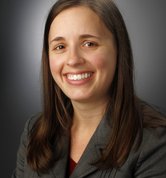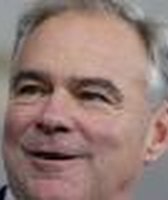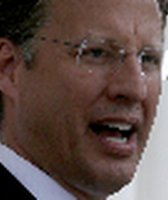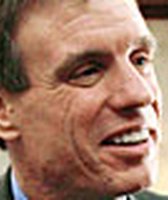Stand up for the facts!
Our only agenda is to publish the truth so you can be an informed participant in democracy.
We need your help.
I would like to contribute
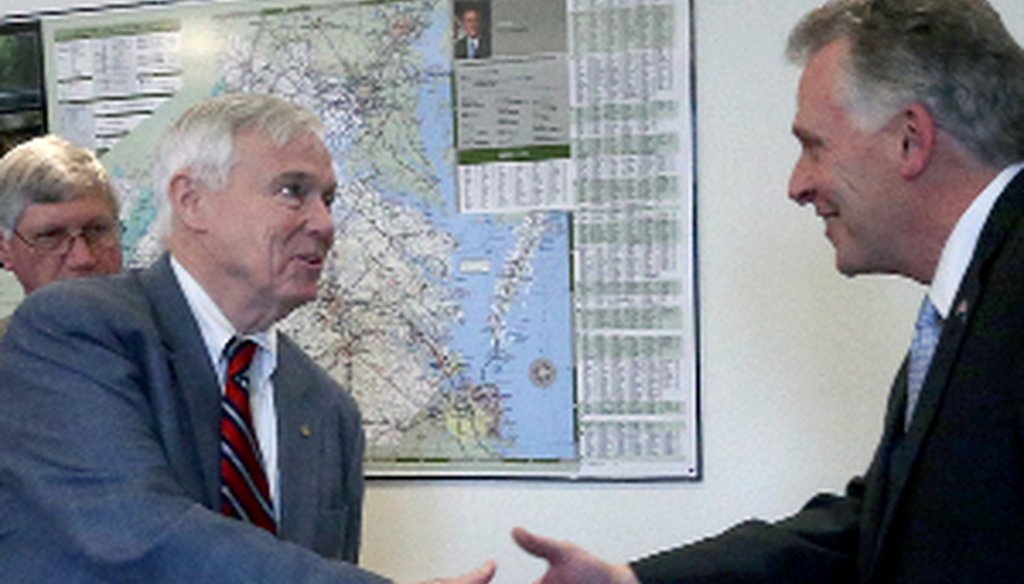
House Speaker Bill Howell, left, shakes hands with Gov. Terry McAuliffe before a recent meeting on the budget impasse. Behind Howell is Secretary of Finance Ric Brown.
From the Truth-O-Meter’s vantage, the debate on expanding Virginia’s Medicaid program had a promising start.
Gov. Terry McAuliffe, the leading proponent of expansion, got a "True" rating on his statement that most of Virginia’s medically uninsured live in working households. And House Speaker Bill Howell, the leading opponent of expansion, was awarded a "True" on his claim about the exponential growth of Medicaid costs during the last three decades.
Ah, but those statements were made in January, when the first salvos fired low-hanging fruit. The sides are dug in now and scatter bombing faulty claims about the degree of Medicaid fraud in Virginia and the ultimate savings and costs that would come from expansion.
McAuliffe, a Democrat, wants to expand eligibility to 400,000 additional low-income and disabled Virginians and is backed by the Democratic-controlled state Senate. Under the provisions of Affordable Care Act, Uncle Sam would pick up the entire expansion tab for the next three years and pay 90 percent of the cost down the road.
But the Republican-led House of Delegates has twice rejected expansion, saying the debt-ridden federal government can’t be trusted to pay its promised share and that Medicaid is already rife with waste. The battle between the two chambers is blocking passage of a two-year state budget.
Sign up for PolitiFact texts
Here’s a recap of our recent fact-checks on the debate:
McAuliffe: "Seventy percent of all uninsured live in households in which at least one person is working.
The governor’s figures came from the Urban Institute, which estimated in 2011 that 70.3 percent of Virginia live in such a households. We rated the statement True.
Howell: In Virginia, "Medicaid has grown by 1,600 percent in the last 30 years."
Howell, R-Stafford, is leading the House’s opposition to expansion.His claim was based on data from the House Appropriations Committee showing federal and state funds for Medicaid in Virginia totaled at $455 million in 1984 and are projected to hit $8.1 billion in this budget year -- a 1,683 percent rise.
Inflation is largely to blame -- in adjusted dollars, the cost rose by 694 percent. Enrollment also greatly expanded, from 300,000 Virginians in 1990 to 1 million in 2012. And the menu of services available to Medicaid recipients also has increased. We rated Howell’s claim True.
McAuliffe: State Medicaid expansion "will save our treasury $1 billion over the next eight years."
McAuliffe used the figures from an actuarial analysis of Medicaid expansion. The net savings to the state under the multi-faceted Affordable Care Act would be about $1 billion through mid-2022.
But of that amount, $601 million in savings would come from expanding Medicaid eligibility -- mainly because the state would eliminate most reimbursements to hospitals and clinics for treating indigent patients. The governor’s claim was overstated and we rated it Half True.
Del. Jimmie Massie: In Virginia’s Medicaid program, "approximately 30 percent, or $2.7 billion a year, is lost to waste, fraud and inefficiencies."
Massie, R-Henrico, broadly interpreted an administration presentation containing an estimate that 30 percent of all health care spending in the U.S. is lost waste, fraud and inefficiency.
Massie applied the estimate to Virginia and concluded that 30 percent of the state’s Medicaid spending also is lost the same way. But the author of the estimate said his national data does not carry over to individual states and Massie failed to offer any solid facts to prove his own claim about Virginia’s Medicaid system. We rated his statement Mostly False.
McAuliffe: Says the Medicaid fraud rate in Virginia was "fact-checked" and found to be "0.47 percent."
The governor made two mistakes. First, PolitiFact Virginia had not previously fact-checked the 0.47 percent figure, as McAuliffe said.
Second, it turned out that the governor mischaracterized the statistic. The 0.47 percent figure is the state’s payment error rate measurement, which is calculated by the federal Centers for Medicare and Medicaid Services. It is the percentage of Medicaid bills that were paid for services Virginians were ineligible to receive. Some cases may be the result of fraud, others are simple clerical errors. CMS stresses on its website that the calculation should not be considered a fraud rate. Experts say most of Medicaid abuse is undetected and can’t be definitively measured. We rated the governor’s statement False.
Republican Party of Virginia: McAuliffe’s budget would "raid school, other $$ 4 Obamacare in VA."
The GOP based its tweet on one clause in a 539-page budget plan McAuliffe submitted last month. That language can indeed be interpreted as giving the administration authority to transfer money to Medicaid from other state programs, although the governor disputes the provision gives him such power.
But authority does not mean intent. The party failed to offer proof that McAuliffe plans to move money out of existing state programs. And the GOP ignored contrary evidence that McAuliffe’s budget would use savings from Medicaid expansion to bolster education and other state programs. We rated the claim Mostly False.
McAuliffe: If the legislature refuses to expand Medicaid, "27 states are going to get our money -- Virginia taxpayer money -- into their states to provide health care for their citizens, paid for by us."
Virginians will pay an estimated $26 billion in Obamacare taxes over 10 years. McAuliffe maintains that if Virginia doesn’t expand Medicaid, a portion of those taxes will go to the 27 states -- including the District of Columbia -- that have broadened their programs.
But there’s no telling exactly what happens to the tax money once it leaves Virginians’ pockets because it all gets mixed into the federal treasury. And there’s no direct connection between Virginia’s decision on expansion and what happens to Medicaid in other states. The goal of expansion is to offer Medicaid to people earning up to 138 percent of the federal poverty line. States participating in the program will receive the same federal subsidy for each new enrollee regardless of whether Virginia joins. We rated McAuliffe’s statement Mostly False.
Our Sources
PolitiFact Virginia, "Speaker Howell says Virginia’s Medicaid costs went up 1,600 percent over 30 years," Jan. 20, 2014.
PolitiFact Virginia, "McAuliffe says Medicaid expansion will save Virginia $1 billion," March 30, 2014.
PolitiFact Virginia, "Jimmie Massie says 30 percent of Virginia’s Medicaid spending is lost to fraud and waste," March 23, 2014.
PolitiFact Virginia, "McAuliffe says Medicaid fraud rate in Virginia is 0.47 percent," April 8, 2014.
PolitiFact Virginia, "Virginia GOP says McAuliffe budget would `raid’ school funds to pay for Obamacare," April 6, 2014.
PolitiFact Virginia, "McAuliffe says refusal to expand Medicaid will send Virginia taxpayers’ money to other states," March 31, 2013
